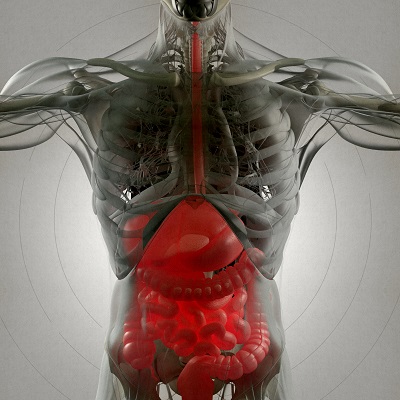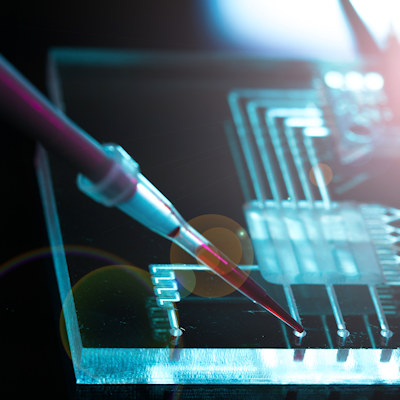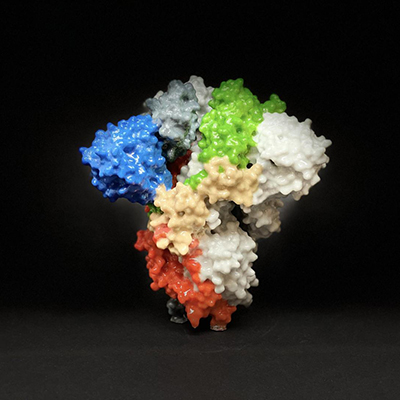 mRNA vaccines may help combat malaria
mRNA vaccines may help combat malaria
George Washington University-led research shows that COVID-19 fighting mRNA technology might save lives, prevent illness, and help eliminate malaria. Their study, published December 1 in the journal npj Vaccines, could usher in a new generation of malaria vaccines, the scientists contend. Read More
 Scientists create lab-grown 3D organoid for gastroesophageal junction cancer
Scientists create lab-grown 3D organoid for gastroesophageal junction cancer
Researchers at Johns Hopkins Medicine have created a laboratory-grown 3D organoid model that is derived from human tissue to advance the understanding of how early stages of cancer develop at the gastroesophageal junction -- the point where the digestive system's food tube meets the stomach. Read More
 NIH awards $3M grant to investigate Candida auris fungus treatment
NIH awards $3M grant to investigate Candida auris fungus treatment
The National Institute of Allergy and Infectious Diseases, part of the National Institutes of Health (NIH), has awarded a five-year $3 million grant to Case Western Reserve University researchers to investigate the next level of treatment for Candida auris, a multidrug-resistant yeast that causes serious infection and, in some cases, death. Read More
 Novel remote automation method for growing cerebral organoids
Novel remote automation method for growing cerebral organoids
Researchers from University of California, Santa Cruz have developed a new automated, internet-connected microfluidics system that grows cerebral organoids. The process could lead to more effective pharmaceutical drugs that treat brain diseases. Read More
 New AI-based framework holds promise for drug discovery
New AI-based framework holds promise for drug discovery
Using the artificial intelligence (AI) method of convolutional neural networks, researchers in China developed a new framework for finding novel drug candidates. Read More
 Estrogen receptors plus COVID-19 spike proteins cause coagulopathy
Estrogen receptors plus COVID-19 spike proteins cause coagulopathy
The SARS-CoV-2 spike protein interacts with the human estrogen receptor alpha in lung tissue and that may lead to severe coagulopathy. This process demonstrates the virus's varied impact based on sex and a path to improved vaccines, a team of U.S. and European researchers found. Read More
 Researchers discover way to create cartilage cells
Researchers discover way to create cartilage cells
Forsyth Institute researchers have discovered two breakthrough mechanisms that could generate cartilage cells, which have regenerative medicine implications for cartilage injuries and degeneration treatments. Read More
 Scientists uncover DNA repair mechanism, potential cancer target
Scientists uncover DNA repair mechanism, potential cancer target
Scientists from the Francis Crick Institute and biotech company Artios have revealed how polymerase theta, a DNA repair enzyme, becomes vital to certain cancers' survival when those cancer cells are unable to use a more common DNA repair method. Read More
 Gene mutation may explain Alzheimer's brain plaque buildup
Gene mutation may explain Alzheimer's brain plaque buildup
Researchers at the New York University Grossman School of Medicine and the Icahn School of Medicine at Mount Sinai have found that a gene mutation may prevent brain cells from clearing away plaque -- protein filled clumps that build up in the brain and are characteristic of Alzheimer's disease. Read More
 Researchers discover new form of undetectable antimicrobial resistance
Researchers discover new form of undetectable antimicrobial resistance
Australian researchers have discovered a new form of antimicrobial resistance that is undetectable using traditional testing methods. Their findings may help in the development of future antibiotics to tackle new mechanisms of antibiotic resistance. Read More
Member Rewards
Earn points for contributing to market research. Redeem your points for merchandise, travel, or even to help your favorite charity.
Research Topics
Interact with an engaged, global community of your peers who come together to discuss their work and opportunities.
Connect
Tweets by @ScienceBoard



